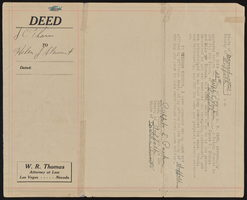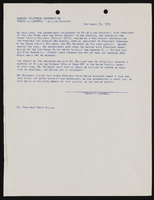Search the Special Collections and Archives Portal
Search Results
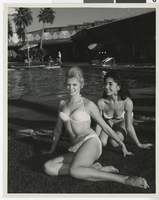
Photograph of Susan Briggs and Valda Boyne Esau at Stardust pool, Las Vegas, 1960
Date
1960
Archival Collection
Description
Black and white image of (L-R): Susan Briggs and Valda Boyne Esau sitting at the Stardust pool.
Image
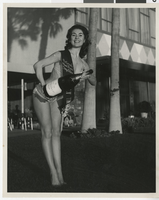
Photograph of Valda Boyne Esau in publicity shot at the Stardust pool, Las Vegas, November 1960
Date
1960-11
Archival Collection
Description
Black and white image of Valda Boyne Esau posing for a publicity shot for the National Mixed Drink Competition at the Stardust pool.
Image
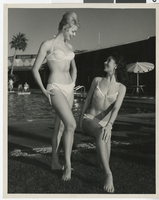
Photograph of Susan Briggs and Valda Boyne Esau posing at Stardust Pool for the National Beverage Association, Las Vegas, November 1960
Date
1960-11
Archival Collection
Description
Black and white image of Susan Briggs and Valda Boyne Esau posing for the National Beverage Association at the Stardust pool.
Image
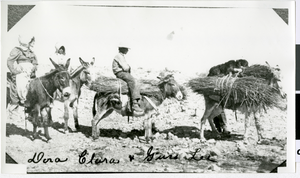
Photograph of a burro pack train, circa 1880s-1890s
Date
1880 to 1899
Archival Collection
Description
A burro pack train hauling basketry supplies. Two Indian women are riding burros. A young man rides one of the loaded burros, and another, hiding his face, is standing behind the other loaded burro. The three riders are identified on the photo, L-R: Dora Lee, Clara Lee, & Gus Lee. The location of the photograph is unknown. Possible locations are Ash Meadows or Pahrump, Nevada.
Image
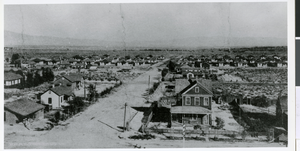
Photograph of railroad cottages in Downtown Las Vegas, 1910
Date
1910
Archival Collection
Description
The railroad (SP, LS & SL) cottages are shown in the background of this photo, 1910. Many of them still remain on south Second, Third, and Fourth Streets. In the foreground, is South Main Street with the two story house at the right erected by pacific Fruit Express Co. for an ice plant official.
Image
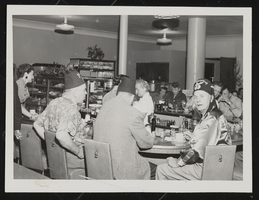
Photograph of Sal Sagev Cafe patrons, Las Vegas (Nev.), 1945-1955
Date
1945 to 1955
Archival Collection
Description
Patrons eating and drinking inside the Sal Sagev Cafe at 1 Fremont St., Las Vegas, Nevada. Some of the men wear fez hats, characteristic of the Shriners organization. Site Name: Sal Sagev Hotel (Las Vegas, Nev.)
Image
Pagination
Refine my results
Content Type
Creator or Contributor
Subject
Archival Collection
Digital Project
Resource Type
Year
Material Type
Place
Language
Records Classification

